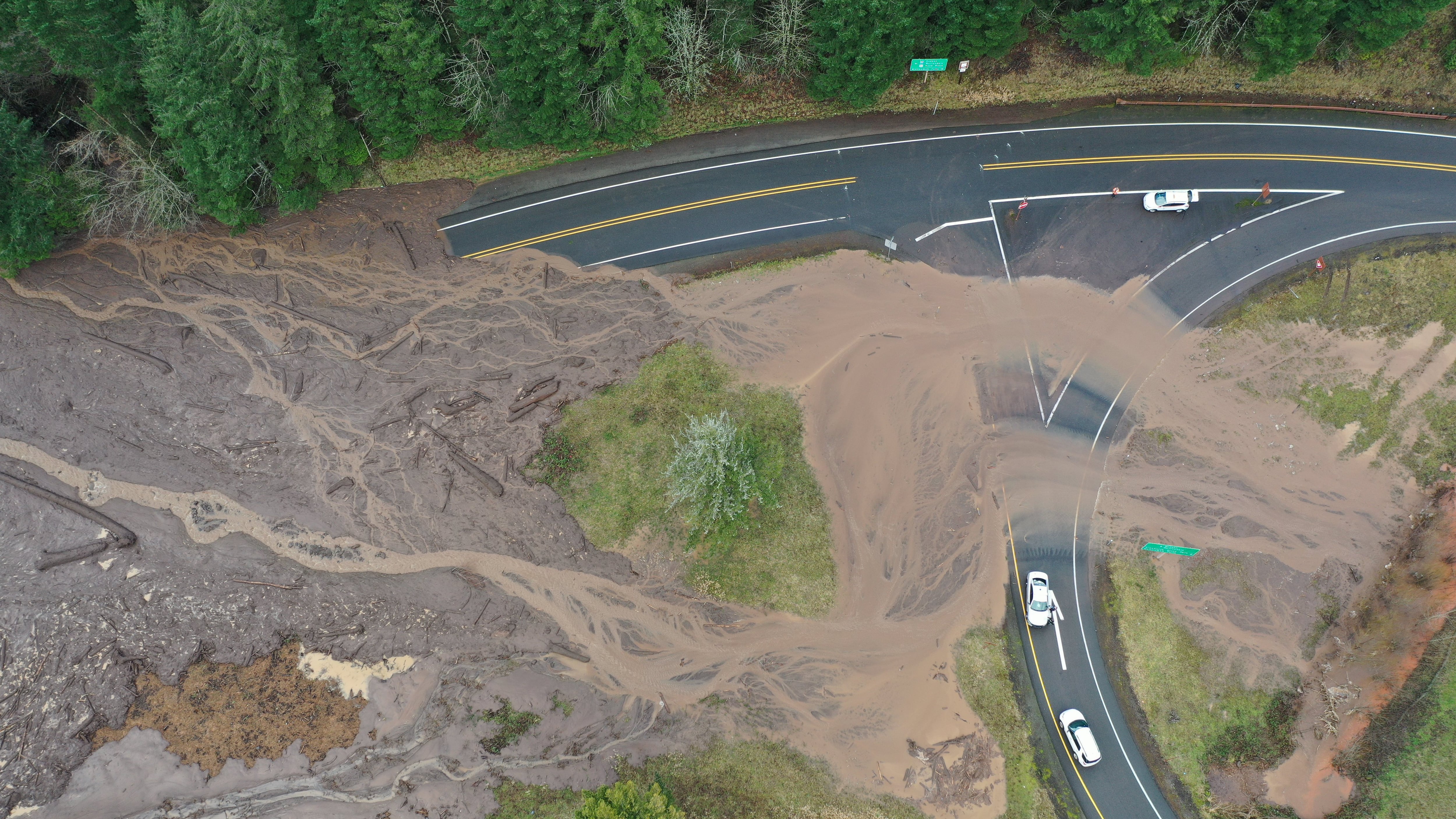Ten days after her car was swept from a road by an early-morning landslide, Multnomah County sheriff's deputies recovered the body of 50-year-old Jennifer Camus Moore from inside her Ford Escape.
"It's not the outcome everyone would have hoped for," said Sgt. Steve Dangler of the sheriff's River Patrol Unit, "but at least, at this point, it brings closure to the family and allows them to begin the grieving process."
Moore's car was buried in 15 feet of mud, rocks and logs by a Jan. 13 landslide near the town of Dodson, Ore., in the Columbia River Gorge. She and her husband were driving home in separate cars on the frontage road along Interstate 84 when the landslide hit at 1:15 am.
He told KGW-TV that they were speaking on the phone when he heard her panic, then crashing noises.
Moore, who worked at Legacy Good Samaritan Hospital in Portland, was presumed dead two days after the landslide. The time it took to recover her body was a measure of the immense scale of the mudflow that carried away her car. A private contractor used a metal detector to find the car, then road crews used front loaders to dig through two stories of wet, unstable mud.
The deadly landslide was an extension of the destruction caused by the Eagle Creek wildfire in 2017. That fire left swaths of the Columbia River Gorge unstable, because the trees that typically provide structural integrity to the steep hillsides are burnt husks.
The town of Dodson was evacuated following the landslide, because officials feared more of the Gorge could give way in heavy rains. On Jan. 16, geologists determined no immediate risk, and let people return home—with a warning that much of the burned-out Gorge carries greater risk of landslide for years to come.
